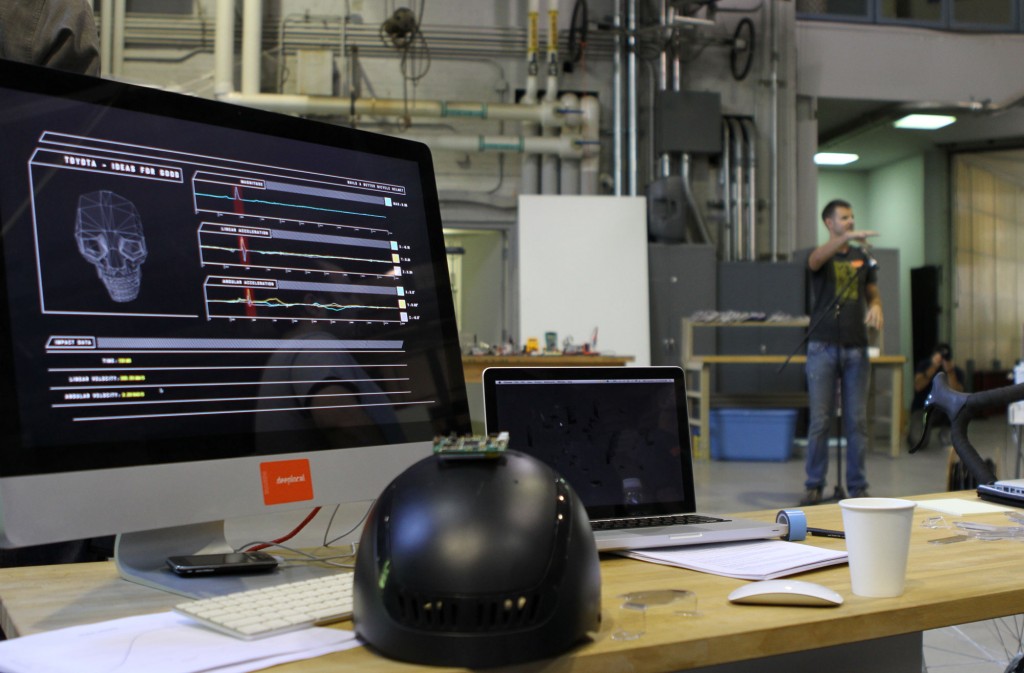One of the winners of a contest to translate Prius technology to the real world, this prototype helmet will protect your head--and call an ambulance for you if you take a spill.

You're in a nasty bike accident during rush hour. Nobody stops to help, but your helmet detects that you have sustained a nasty blow to the head and automatically calls 911. This "smart" bike helmet idea, one of five winners in Toyota's Ideas For Good competition, is currently being worked on by engineers from Deeplocal and Carnegie Mellon University.
The Toyota competition, which ended this week, challenged entrants to repurpose Prius technology for use outside of the automotive arena. The smart bike helmet is inspired by T.H.U.M.S. (Total HUman Model for Safety) technology--a piece of simulation software that Toyota uses to measure injury to body parts that can't be detected using conventional crash test dummies.
"We abstracted from that and said let's start with a circuit that's one inch by half an inch, two accelerometers, and three gyroscopes," says Nathan Martin, CEO of Deeplocal. It's a setup that could allow users to track ultra-high impacts (up to 250 g's) as well as movement and tilt. "We can record what's going on with the head as its moving, and see how is it moving up to 400 times per second," explains Martin.
Here's how it works: a pair of circuit boards is attached to a bike helmet. The boards write to a micro SD card, and the whole thing is powered by a small battery. In the event of an accident, a user can simply pull out the SD card, pop it in a computer, and play back what happened. A piece of software provides a visualization of the biker's head as it tilts around and shows the crash's impact.

Eventually, Martin imagines that the bike helmet could use wireless communication instead of an SD card. That would make the scenario described at the beginning of this post possible. The technology could be extended for others uses, too--like a football helmet that senses dangerous head injuries, which have become a large problem for the sport.
There's just one issue to tackle: price. The prototype circuit boards cost $800 a pop, but Martin says that the price may drop to $30 to $40 a board by the time the helmet is ready for market.
The circuit board design was handed over this week to CMU, which will advance the project and search for additional funding (Toyota has offered $100,000 to the university to advance the five winning projects).
"This will be pushed along," says Martin.
[youtube 0mBNRCEyoJQ]
Reach Ariel Schwartz via Twitter or email.